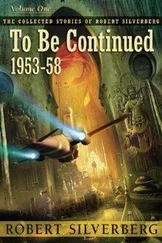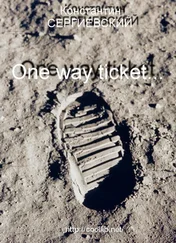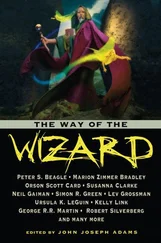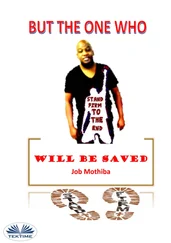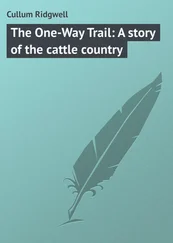“Well, I guess you and Cole are just going to have to make the call. You’re not going to be stealing any of my bases though. I want a home run from you. Nothing else will do. Over.”
“Can you tell me for sure that the cylinder we’re heading for has the buggies in it?”
“That’s what the manifest says it is. The only way to check is to open it up and take a look.”
“If it’s wrong, we’re dead and this base never gets built.”
“Then you’d better pray the manifest is right. Shame you were never the praying type, Kittridge. Over and out.”
[Transcript of private phone call between Bruno Tiller and Project Sparta 8/5/2040 1430MT.]
BT: We’ve crunched the numbers and we’re still coming in high. Not over-budget high, but I’m convinced there are more savings here. Make me look good.
PS: How far are you willing to dig down, Mr Tiller?
BT: All the way. Give me my options.
PS: You misunderstand me. Personally, how far are you prepared to go? Our analysts have some new scenarios for you to consider, but whether I show them to you is dependent on the content of your character. If you’re at all, shall we say, squeamish, then we’ve probably gone as far as we can go.
BT: The content of my character? This is Bruno Tiller you’re talking to. You know what kind of man I am.
PS: I need you to spell it out for me. We’ve already made significant departures from the contract, which NASA have reluctantly agreed to. Any further deviations will necessarily have to involve you being economical with the truth. Certainly to NASA. And perhaps to the XO board to provide them with plausible deniability. The current scheme will come in on time and within the agreed budget. It’ll provide the contractors with what they’ve asked for, and XO will be paid handsomely for it. At this stage, no further alteration is necessary.
BT: All the way. You hear me? All the way. Everything. Down to the last cent.
PS: I’ll be in touch, Mr Tiller.
[transcript ends]
Frank and Marcy were four hours out. They’d walked eleven and a half miles. If they carried on, they were into their safety margin, and either it worked out or they suffocated. One of the two. No one was going to come and rescue them, because there was no one to come and rescue them. Even if Brack had decided, inexplicably, that he might help them, there was nothing he could do anyway.
A line of long, low hills ran down the center of the crater, with rubble-strewn sandy slopes. Further out, the terrain was less broken and the sand was deeper, though there were still craters, difficult to cross and easier to go around. They’d navigated all those: now they were back out on the crater floor, approaching the main wall.
They were close. Three and a half miles away. Their target lay somewhere near the rim, on an eroded part of the wall, which looked almost like a bay between two cliffs.
Frank put his helmet against Marcy’s. “What do you want to do?”
“Why’s this my call?” she asked.
“Because Brack put you in charge. And I don’t want to have to make a decision that might kill you.”
“But you’re good with me killing you?”
“Something like that.”
“Thanks.” She turned to look at the distance they’d already covered, and back at the distance yet to go. “What would you do?”
“Land the ship closer to the buggies. But that doesn’t really help, does it?”
“We have to work with what we got. If we turn back now, where does that leave us? We just have to do all this again tomorrow, and we’re not going to be any faster, and we’re not going to be any further on.”
“We could have brought spare gas. Although, since we have to change out the old tanks in an atmosphere, unless they’ve swapped out the open buggies for some closed-cab ones we’re never going to get the chance.”
“So we go on. We can’t really do anything else.”
“Except if we do, and things aren’t right at the far end, all we can look forward to is a couple more hours in each other’s company. You want to risk that?”
“We’re on Mars, Frank. You’re going to worry now about risk?”
“Before, I was worried about getting canned and put in the Hole. Now I get to worry about staying alive.”
Marcy took a step forward. “I’m going on. Are you coming?”
All or nothing, then. As he watched her walk away, he thought about what someone might have to do to earn the nickname “the Highway Killer”. He was guessing it had something to do with not knowing when to stop. “I’m coming.”
He followed her across the plain, his tool belt shifting with every one of his own strides. His life was measured in breaths: the harder he worked, the fewer he had left.
It was better if they traveled side by side, avoiding each other’s kicked-up dust, and even then, a thin film of pink covered their helmets. It made the already dull day darker. The sun was almost overhead, and the external temperature was a solid plus twenty-three: nothing the Bay Area ever suffered, but almost reasonable. The shadows had shifted so that the color of the land was more brown, and the sky was… not blue, but as blue as it was going to get.
That’s when he saw it, the smudge of other against the different shades of red, a smear of black and white, twisted into a candle and melted against the ground.
He slowed. The suits’ lack of peripheral vision meant that Marcy didn’t see him, and the distance between them widened.
“Marcy? Marcy, hold up.”
When she eventually stopped, it took a while for her to find him. He pointed at the object, at the base of the slope. It was obvious, once pointed out, and it was roughly in the direction they’d been heading anyway—it wasn’t as if they’d been likely to miss it.
“What is that?”
“I think it’s a parachute. That’s the only thing it can be.”
She opened up her map and held it out in front of her. “The cylinder has to be close by.”
Frank took the opportunity to check both the clock and his suit’s reserves. They’d kicked over the five-and-a-half-hour mark, and his tanks were reading just under forty per cent. That was right, wasn’t it? He tried to do the math, and it sounded reasonable. They could actually do this.
They covered the last mile more slowly, not knowing how accurate the map was. It didn’t take long to see the cylinder, though, lying on its side in a slight depression at the base of the slope. Further up, there was a blackened area, and signs that the supplies had touched down there, then rolled. The canopy, patterned with concentric black and white rings, had caught in the wind, dragging its hugely long shrouds behind it before entangling with a boulder.
The cylinder looked intact. The contents weren’t spilled across the crater floor, and neither were they burnt up.
“OK,” said Marcy. “That’s our cargo.”
It was just like they’d trained for. The big white cylinder, the near-vacuum around them, the dust and the sand. The only things that were different were the rocket unit bolted to one end, and the parachute attached by impossibly long lines to the other. Somewhere, miles away, would be a discarded heat shield. They had no way of finding that, even if it was now littering the surface of an otherwise unspoiled planet.
The parachute material, and even the empty cylinder, might be something they could recycle into useful things. The fuel that remained in the rocket motor, too. It had made it all this way, just as they’d done. It’d be stupid to throw it away.
Frank selected the tool from his belt that would open up the hatches, and tried, pointlessly, to blow the settled dust away from the mechanism.
“Did you just do what I thought you did?” asked Marcy.
Читать дальше

